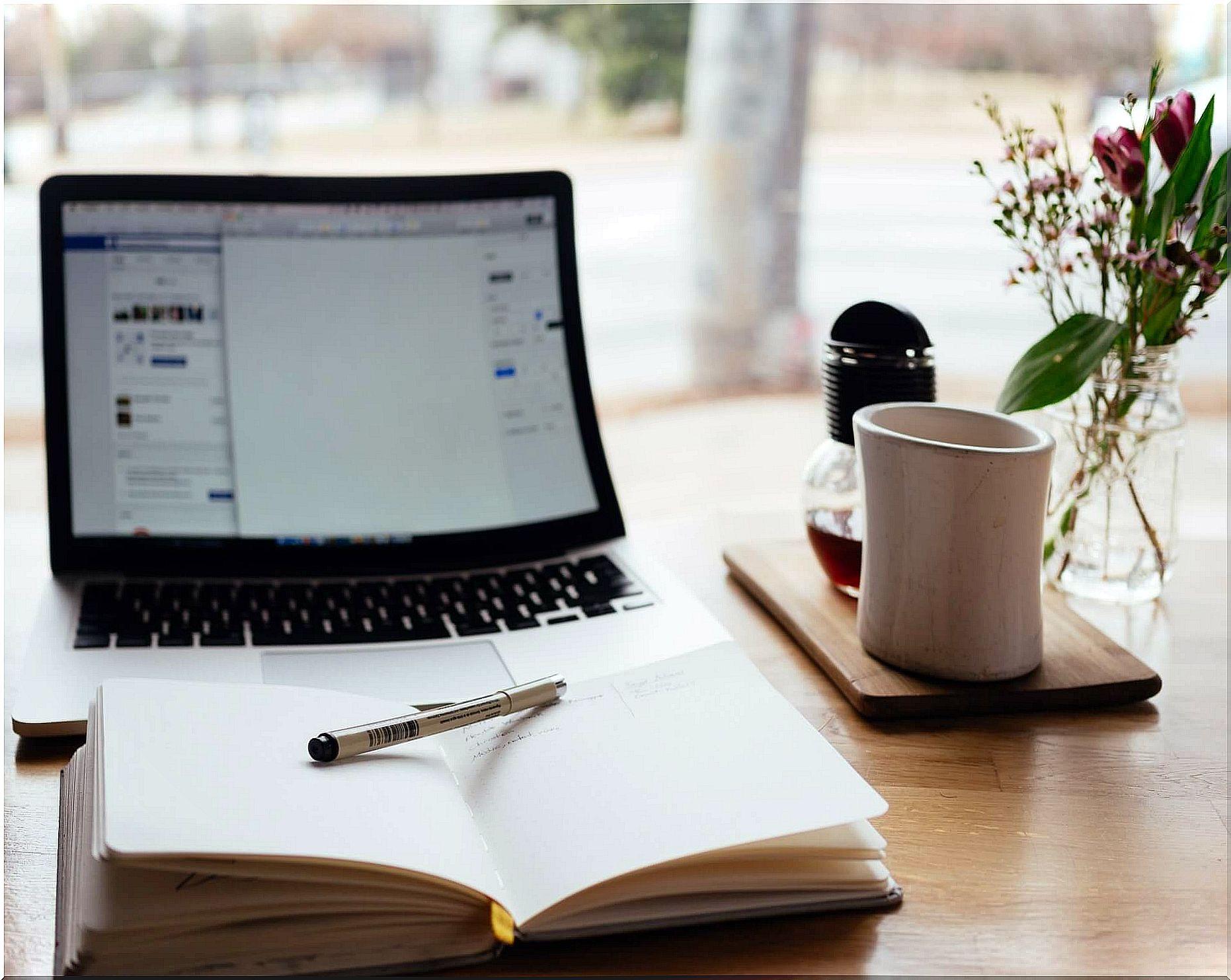13 Tricks To Overcome Stress, Anxiety And Fear
Stress, anxiety and fear are commonly perceived as adversaries in today’s society, given the negative impact they can have on quality of life when they are not properly managed.
Experts Estanislao Bahrach, molecular biologist, author and Harvard professor, comments that in a complex world characterized by uncertainty, the brain is guided by that alarm mechanism that only detects dangers and threats. Additionally, he claims that the brain does not want us to be happy: it only wants us to survive. Because of this, we experience stress, anxiety, and fear.
How can we handle stress, anxiety and fear?
In a study published in the journal Psychological Science and carried out at the University of California, Irvine, they show us that even the slightest stress has an impact on health. Therefore, if we do not learn to manage these conditions, we will not only have a worse quality of life, we will develop even more (and more serious) diseases.
When anxiety, stress and fear occur frequently in the day to day it is necessary to seek psychological help. This does not mean that we are unable to improve on our own, but that we need guidance on how to do it in order to achieve our goal in a healthy way.
Additionally, we can consider improving lifestyle habits and take advantage of the following tricks that we are going to discuss below.
1. Integrate mindfulness to the day to day

The mindfulness is this healthy practice, beneficial and revolting able to improve the quality of life. We are told by studies such as the one carried out at Stanford University in which its effectiveness in reducing stress and anxiety is endorsed.
To overcome fear, stress and anxiety, it is not necessary to attend a mindfulness session a year, a semester or simply “when we need it” or “at peak moments”. Actually, we must try to integrate it into the day to day, in such a way that it is a daily tool, capable of helping us to always manage ourselves.
It can be said that mindfulness is a highly recommended tool because it helps to act conscientiously, to appreciate things, not to succumb to intrusive thoughts about the past or the future, to live in the present and maintain calm and perspective in each action and moment.
2. Rethink fear
Although fear is a negative emotion, we must bear in mind that it can also bring us positive questions when we decide to see beyond the discomfort that it can produce at the moment in certain circumstances. In fact, if we look closely, we will realize that fear helps us protect ourselves from danger and that it is a defense mechanism that has been helping us survive as a species for thousands of years.
The therapy and the exercises of exposure to fear consist of approaching all those dimensions in which we lose control, they scare us and we lose competences. In this way, they help us feel less uncomfortable and vulnerable, such as when speaking in public.
3. Give yourself permission to rest
When stress, anxiety and fear occur frequently, in addition to going to therapy and trying to maintain good lifestyle habits, it is necessary to allow yourself to rest.
Many times, we pressure ourselves “to be better as soon as possible and lead a normal life” and we do not respect our times, and this is something that can be counterproductive. So, instead of rushing to “be okay” we can take our time – but not stop at all – and also enjoy the moments of rest both physical and mental.
4. Exercise to relieve daily stress

Did you know that exercising is one of the best ways to relax as well as alleviate anxiety and stress? Well, yes, and this has been proven on multiple occasions by experts, including the authors of a study entitled: Influence of psychological stress and moderate physical activity on cardiovascular reactivity.
On the other hand, the “movement” as such makes the body “believe” that it is fleeing from what causes fear and that contributes to lower anxiety.
Marcelo Ceberio, clinical psychologist and researcher, comments that sport and physical activity are very beneficial for all people, but it can be a great tool for those who suffer from stress and anxiety, therefore, he usually recommends its regular practice.
5. Rethink anxiety
The author of a study carried out at Harvard University comments that, according to his perception, people who interpret their anxiety as an impulse or that energy that invites action, instead of nerves or simply “discomfort” and “catastrophe” they can develop a more beneficial mindset in the face of threat and overwhelm, and thus function better.
Therefore, therapies and exercises that help to rethink anxiety as an ally and not as an enemy are valuable to increase well-being.
6. Recognize the good

It is necessary to make a list of what worries us and another list of things that are going well for us. In this way, we will not only think about the negative, but also about the good that happens to us. It may be that the good list far outweighs the negative list.
7. You have to look at things as a whole
Survival alerts instill fear and permanent fear in us. We have the feeling that we must always keep our guard up. However, we must try to learn to distinguish which are the messages of the mind that we should heed and which are not.
It may be that a thought comes to us again and again to try to warn us that something bad could happen in the future. Every time it shows up, instead of letting it take control of our present, we can listen and let it pass.
The thought will return, but each time it does, we must try to say something like “I am not going to talk to you” to keep our calm and thus prevent anxiety from causing us discomfort.
8. Appeal to good humor
Taking things with humor is just as important as treating some of your chores as a kind of hobby.
For example, sometimes, to control stress we have, we can try to conceive each action as a video game or an adventure, instead of an obligation, an annoyance or any other negative issue.
When something goes wrong, we can start the next game of the game and try doing things differently so that the task / adventure goes well.
9. Review the values
To counteract the negative speech that stress, anxiety and fear bring us, we can try to do a mental review of the positive values we have to comfort ourselves and little by little try to divert attention from what worries or overwhelms us.
10. Helping others always brings us something

Kindness and emotional connection optimizes brain function. It relaxes us, fills us with calm and optimism. Having the door open to friends and family, helping our children to do their homework, meeting new people … All those behaviors based on support, listening and openness help us better manage stress.
11. Enjoy a good chocolate
Although dark chocolate (that is, with a high percentage of cocoa cannot eliminate depression, stress, anxiety or fear), by itself, it can be a small pleasure capable of helping us feel better in certain moments.
Interestingly, he has observed that its use helped improve the mood of cancer patients dealing with anxiety and depression.
12. Cultivate a good inner dialogue
Cultivating a good internal dialogue day by day reorganizes priorities, clarifies objectives and, to a certain extent, purifies the negative effect of worries. Therefore, learning to be able to offer ourselves an hour a day in order to reflect, to make contact with our being and our own needs, reverts to psychological well-being. We gain in well-being and self-confidence.
13. Stress is part of life, it does not control it
Is stress as bad as they tell us? We must be clear about a simple aspect: the stress that is beyond our control and that takes control of our life, leaves consequences. Now, this physiological and emotional response is part of the human being and has a purpose: to help us react, to motivate ourselves, to survive.
Sometimes we are “forced” to respond in a certain way to life, with more impetus, with more energy. Stress is after all that dimension that should always be under our control and not the other way around.
As we have commented previously, to deal with stress, anxiety and fear we must not deny or avoid them at all costs, but rather learn to see their useful side and also the best way to manage them so that they do not prevent us from leading a normal life. .









